- Home
- Roger Zelazny
Madwand Page 10
Madwand Read online
Page 10
“I was there. “
“Why do you wish to help Pol?”
“I am uncertain.”
“How is it that I could not kill you?”
“A corpse cannot die.”
“Now it is I who do not understand.”
“You know enough. Good-bye.”
The red-haired man collapsed and lay still. Mouseglove approached him cautiously. There was no sign of breathing, and he considered the man’s waxy pallor at closer range. He reached out and touched a cheek. It was cold.
He raised the right hand. It was cold, also; and a certain stiffness had already come into the limb. He pressed upon the fingernails one after the other. They all grew white and remained so. Finally, he leaned forward and lay his ear upon the chest near to the bullet hole. He discovered it to be a quiet place.
He arranged the body, crossing the arms upon the breast. He drew the white cowl up over the head and down across the face. He rose and moved away.
Crossing to the place where Pol and Larick had stood, he located their tracks and began following them. They disappeared quickly, however, in the rocky terrain. He halted there and spent several minutes pondering. Then he turned to the city of illusion and began his descent toward its flickering towers.
VIII
Wind whistling past him, cloak flapping behind him, Pol leaned forward upon the shoulders of the lesser dragon—a lithe, brown creature of similar mien and considerably less mass than the giant beasts of Rondoval—his legs gripping the sides of its back-ridge, hands upon a leather harness it wore. Twenty meters to his left and a few higher, Larick was similarly mounted upon one of the leathern-winged creatures. He glanced occasionally at Pol, who maintained an impassive attitude. A number of bright strands, visible at the second seeing, ran between them. Pol wondered how difficult it might be to kill the other when the time finally came. He decided that magic was too slow and uncertain a thing when employed against another sorcerer. He decided to strike quickly, with full violence and without warning once he had learned what he needed to know and could afford to dispense with the man. It would be foolhardy to leave enemies of his sort alive.
The sun was about to cut the throat of another day in the west and the moon had long since risen—a pale rag tossed above cloud-crests, brightening now over rough and shadowed land—as north and west they headed, long necks of their dark mounts extended, vanes outstretched and occasionally booming against gusts.
They had changed mounts four times during the day, finding the fresh ones magically tethered at a series of high locales. Pol’s shoulder and leg muscles had long before ached themselves to the point of numbness. He stole a glance at Larick, who seemed tireless, bent forward and urging his mount to greater efforts. He stared ahead as if trying to burn holes through the darkening air.
Avinconet, Avinconet . . . He had repeated the name to himself for hours, in time with the rhythms of the flight. He had answered truthfully in telling Larick he had known nothing of it, yet—
It seemed now as if there might be some small familiarity attached. It seemed possible that there had been references in some of his father’s earlier journals, though he could not recall anything specific.
Avinconet. Avinconet and Rondoval . . . Had there been some sort of tie?
The sun dipped lower and the moon grew brighter—and then, splashed with daysblood, he saw it, spread across the face of one of the more prominent peaks of a distant range. And he knew that he knew it.
Avinconet was the castle of his dreams, through which he had passed on his way to the Gate. Somehow, he had known all along that it was a real place. But seeing it . . . Seeing it gave rise to a train of disturbing sensations. He found himself anxious to enter the place, to locate the Gate. There was something that he had to do there, wanted to do, despite a reflex squeamishness at the very thought of the Gate. Yet, precisely what that action was, he could not say.
He watched the grim architecture grow before him, paling to yellow, silver, gray-white—a huge, central keep, stepped like a terrace, bristling with towers at many levels, flanked by long ranks of attached side-buildings—surrounded by high, wide ramparts, battlemented, possessed of numerous angles, a squat tower atop each turning. Windows were lighted at several levels toward the right side of the main structure. He shifted to the second seeing and immediately noted a tremendous massing of strands high in the air above the rear of the keep. He also noted a small, pale light drifting along the forward wall from left to right, pausing occasionally, wavering.
When they reached a position above the place, Larick swung his mount into a huge circle and Pol’s followed, buffeted by strong winds. They commenced a slow, downward spiral.
As they descended toward the larger of a number of courtyards toward the rear, Pol continued to study the small light, visible only with the second seeing. It appeared human in form from this nearer distance, and there was a long, pale strand attached to it. Something about its aspect at this level touched him with a vague feeling of mournfulness.
As they dropped lower, Pol saw that the rear wall of the enclosed area was rough rock—a part of the mountainside itself—pierced by a number of irregular dark openings, several of them barred. It was at about this point that the light upon the ramparts disappeared from sight.
They touched down roughly and Larick alit at once. Moments later, Pol felt his strings jerked and he followed him. Larick unharnessed the beasts, shouted an order and watched them shuffle off into one of the cave-like openings. He followed them and drew upon something in the shadows. A metal grillwork dropped into place with a clang which echoed through the court.
Larick returned to Pol.
“We made excellent time because of the tailwinds,” he commented. “I didn’t think we’d be getting in till after midnight. He might be able to see you now. I don’t know. Ill have to check.”
“Who is ‘he’?” Pol asked.
“Ryle Merson, the master of Avinconet.”
“What does he want with me, wizard?”
“That is really for him to tell you. Come this way.”
Pol felt a tugging upon the strands Larick had affixed to his person. He made no resistance but followed their lead toward an open archway to what he judged the northeast. They passed through into a flagstoned corridor where Larick led him about a series of turns.
Left, right, left, left, Pol memorized.
And then they halted before a low doorway. Its heavy wooden door stood ajar and Larick pushed it the rest of the way open. Pol noted that it could be secured from the outside by means of a heavy wooden bar.
“Inside,” Larick said, and power pulsed in the strands.
Pol moved forward, stooped and entered. A bench ran along the righthand wall of the small, low-ceilinged room. There were no windows, only a few air-slits at the upper corners. A ragged blanket and a heap of sacking lay upon the bench. There was a chamber pot upon the floor nearby. An empty candle-bracket was affixed to the wall above the bench.
Pol turned back after he had passed over the threshold and the compulsion ceased.
“What’s for dinner?” he asked.
“If he can’t see you now, I’ll have something sent over,” Larick replied.
“I’ll study the wine list while I wait.”
Larick stared at him, shook his head.
“You could use a few more restraints. I don’t want you tearing this place apart,” he said. “Go sit down on the bench.”
“All right, wizard. Not much to tear, though.”
Pol crossed the room and seated himself. He could feel the working of the strands about him almost immediately.
“You do that very well,” he said.
“Thanks.”
“ . . . But I don’t believe it will save you in the end.”
Larick chuckled.
“ . . . So long as the end is a great way off.”
“Don’t buy any long-playing records,” Pol said.
“What does that mean?”
“Even if you find out, it will be too late.”
“Have it your way, Chainson.”
“I may.”
The door closed. The room became very dark. Pol heard the bar slide into place. He shook off the restraining strands.
He had toyed with the idea of trying to get a strand onto Larick while Larick was restraining him, a thing which would permit him to follow the other’s progress about the place, seeing some of the things which he regarded. He had dismissed the notion as too risky, but now he wondered . . .
When he switched to the second seeing, the room was bathed in a pearly glow. A pale golden strand hovered near the door. He raised his right hand and exerted his will. Beneath multiple layers of illusion his dragonmark throbbed. The filament drifted toward him.
When it made contact with his fingertips he felt a tiny, near-electrical tingling. When he blanked his mind and drew upon it for impressions, the sensation spread and he realized quickly that he was indeed reaching the other. Larick might be accused of carelessness, he mused, save that he had no way of knowing that Pol could still function in any magical capacity.
He followed Larick’s progress through several turnings and up a long flight of stairs. There was a wide window at one turning, and he saw stars beyond it. Larick made his way through progressively more sumptuous areas of the keep, coming at last to a long gallery leading to a pair of ornate double doors. A liveried servant sat upon a bench to the right of the entrance. He rose as Larick approached, his face bearing a smile of recognition.
“Is he awake?” Larick inquired.
The man shook his head.
“I doubt it,” he replied. “It’s been awhile—and he said he did not want to be disturbed.”
“Oh. Well, if he should wake up, Mak, tell him that I’ve brought him the man he wanted.”
“If he does, I will. But I don’t think he’ll be about again tonight.”
“Then I’m going to see about getting the fellow fed now. Do you want anything sent up?”
“A bit of beef and bread would be nice, and maybe some beer.”
“Ryle’s turned in a little early . . . ”
“The trip back tired him. He came rather fast.”
“Don’t tell me about it. All right. I’m for the kitchen. Good night.”
“ ’Night.”
Pol followed him away from the place, step slower now, and down a back stair. He overheard him order the meals from a tired-looking fat woman of more than middle age, whom he had interrupted at a meal of her own, and then watched him prepare a light, cold dinner for himself and eat it quickly. Pol maintained the contact, his own hunger growing. On the fringes of things, he could see the woman preparing the trays.
Larick lingered over a second glass of wine, then sighed and rose slowly to his feet. He bade the woman good night, visited the latrine and made his way on, and downward, for a long distance into what must have been the northeastern wing of the place.
Pol continued his efforts to commit the route to memory, thinking that it must lead to Larick’s own quarters. But it dropped lower and lower and seemed to lead farther and farther back toward the mountainside. All traces of splendor were gone here, and the area through which he passed bore the dustiness of disuse and seemed in places to have become a repository of damaged furniture.
Beyond this was a zone of dark emptiness where Larick created a light upon the tip of his blade and bore it overhead like a torch, coming at length to a bare and sweating rock wall over which he ran his hand. He followed this for a time, then turned into an opening in the rock, descending a steep slope into which rough steps had been hacked.
The way narrowed, grew level, turned. Larick began to slow. Twice again, it turned, and by then his steps were faltering. He was approaching a high, massy prominence with something possibly large and somewhat reflective atop it.
His hand wavered and the blade was lowered as he began to climb. Pol became aware that his breathing had deepened. Just as he reached the top he dropped to his knees and remained still. Pol could not make out what it was that lay before him, for something had suddenly gone wrong with the man’s eyes.
He waited for a time, but nothing more happened, and then his food arrived and he released the contact.
When he finished eating, Pol pushed the tray away and sought the golden strand again. But it had either drifted off or dissipated. He realized then that he should have affixed it to something, pending his later attention. Yet, he was tired, and he knew that he would not be disturbed again till morning. He assembled a bed of the sacking on the bench and stretched out, covering himself with the blanket. He dozed almost immediately, myriads of images from the past several days flashing behind his eyes.
These faded quickly, and that other consciousness came over him again. There was a moment of intense cold, and then he stood before the great Gate. He felt other presences at his back, but he was unable to turn and look at them—nor did he desire to do so. The right half of the Gate swung outward a sufficient distance for him to angle through, tiny wisps of smoke or fog emerging from it. This vision had occurred with a sharpness and a rapidity which surpassed all earlier versions, and this time there was no ambivalence, no hesitation on his part. He moved forward immediately and entered the land which lay beyond.
The first thing that he saw, facing him, a short distance across the blasted landscape was the head. Impaled upon a sharpened pole, eyes still open, the head of one of the demon creatures leered in his direction. He felt that there was almost something personal in this display, a very specific caution which he could only at this time find amusing.
As he felt the transformation come over him, he winked at the grisly visage and rose, wraith-like into the wan air. Wind-stirred sands shifted snake-like among the rocks below him. He drifted southward, gaining momentum rapidly. As he did, a sense of jubilation grew within him until he wanted to proclaim it in a voice like a thousand trumpets across the land. He spread his dark wings, vast as the sails of some mighty vessel, and beat his way over the deadland, rising to such an altitude that his mountains finally became visible.
He, Prodromolu, was filled with the dream-memory of his other life, and he forgot the head and the Gate and the small human thing named Pol Detson, of whom he might once have dreamed. He needed none of these.
When he reached that range, he hurled himself upon it, fighting the hurricane-force winds that would dash him against it. Six times he assailed those heights and was beaten back.
On the seventh he prevailed, and his statue—dripping of honey and spices, of wine and of blood—was shattered at the Note that he uttered. Wherever his shadow passed, buildings toppled and his worshippers faded and died. Nyalith rose like a tower of dark fires before him. They met over the waters of the stilled ocean and commenced the dance that would take them around the world. Stars fell like burning souls about them, as the roaring winds bore them along the jewelled girdle of the planet. Their movements grew more savage with the deaths of kings and the fall of temples. He spoke again at the Mountains of Ice, and the Spell of the Gateway was wrought as Talkne, Serpent of the Still Waters, completed her journey of ten thousand years and rose from the depths to seek him—
Pol, for a moment, knew of the Keys and the dark god’s promise as he was jerked suddenly alert there in his cell. The dream still vivid within him, he sat bolt upright and regarded the ghostly image of the woman who stood beside him, gesturing, lips moving, colorless eyes focussed upon his own. He half-rose, putting forth his hand.
She retreated, a look of sudden alarm upon her pale countenance. He withdrew, composing his face and making reassuring gestures. She halted. She appeared to study him. Slowly, she raised her arm and pointed at him. Then she turned and pointed toward the rear of the cell, turned back toward him and shook her head in the negative. He furrowed his brow and she repeated the motions. Suddenly then, she raised all five digits of her left hand and two upon her right. She shook her head, then went through the
first series again. He shrugged and turned his palms upward.
She began to wring her hands. He rose, and she backed away. He took a step toward her, and she continued to retreat. He watched as she reached the far wall and passed through it, leaving behind perhaps the faintest trace of an exotic perfume.
He returned to his bench and seated himself, the entire sequence merging with his interrupted dream into a kind of hallucinatory half-world. Perhaps he had imagined it, he considered. Only her high cheekbones, large eyes, small chin and narrow span of brow beneath wide-swept wings of hair made such a strong, such a definite image. He sought, but she had left no strands behind by which he might test her reality.
He crossed to the door of the cell. For how long he had slept, he was not certain. He was still tired, but felt a little more rested than he had earlier. It seemed likely now that most others in the place would be asleep. Therefore, the time seemed good to depart, to commence investigating. He shifted to the second seeing to study the area about the door.
The response was slow, murky. It was as if he were wearing smoked glasses on a foggy day. He concentrated on the bar outside, on locating a connecting strand by which he might draw it.
Slowly, very slowly, a greenish strand came into focus—and passed out of it again. He called upon his dragonmark for power and willed that it return.
But the dragonmark did not throb. There was only a tingling, an itching sensation upon his forearm. The strand swam back into view and he reached for it. There was no contact. It passed through his fingers as if they were not present. Then it faded again. His eyes began to ache.
He lowered his hands. What was happening? he wondered. This was the first time in all of his experience in this land that the power had failed him. Could Larick have done something to block its flow?
Then he remembered what Larick had said about the initiation rite—that it might have this effect, that one should refrain from even the simplest workings for several weeks. Yet it had worked earlier, when he had followed Larick about Avinconet. It must be erratic during this period, he decided with a sigh. Somehow, he could hardly think of the injunction as applying to himself. His initiation had been a sham, a trap. Or had it? He had gone through all the motions, had undergone consciousness-heightening experiences at the proper times. Could it be that he had actually passed his initiation while being transformed into a monster?

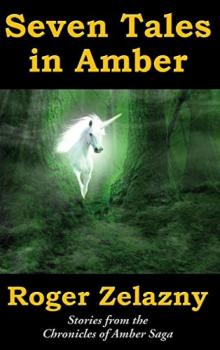 Seven Tales in Amber
Seven Tales in Amber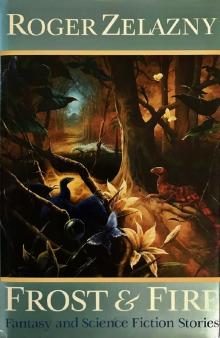 Frost and Fire
Frost and Fire Doorways in the Sand
Doorways in the Sand Unicorn Variation
Unicorn Variation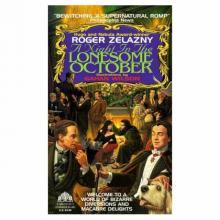 A Night in the Lonesome October
A Night in the Lonesome October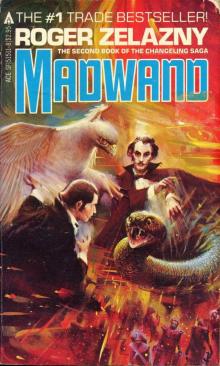 Madwand
Madwand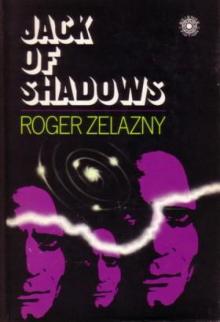 Jack Of Shadows
Jack Of Shadows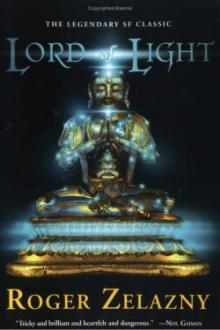 Lord of Light
Lord of Light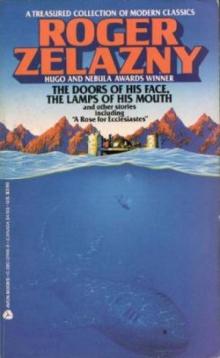 The Doors of His Face, The Lamps of His Mouth and Other Stories
The Doors of His Face, The Lamps of His Mouth and Other Stories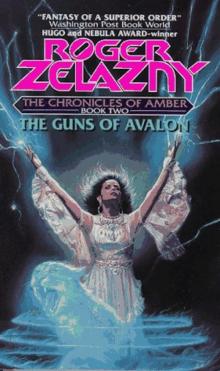 Guns Of Avalon tcoa-2
Guns Of Avalon tcoa-2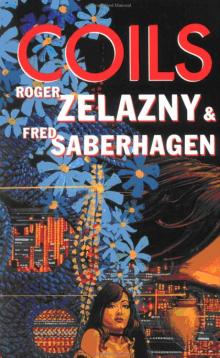 Coils
Coils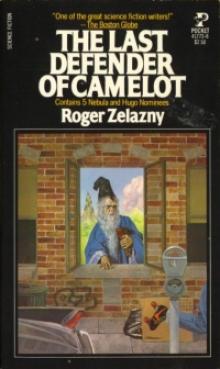 The Last Defender Of Camelot
The Last Defender Of Camelot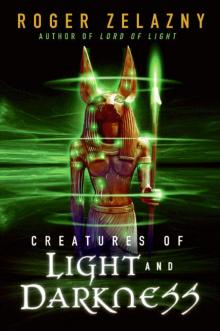 Creatures of Light and Darkness
Creatures of Light and Darkness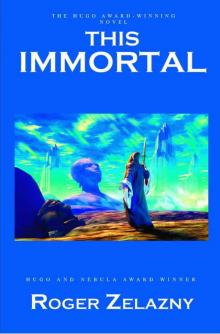 This Immortal
This Immortal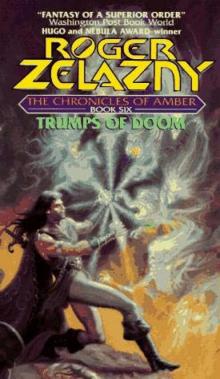 Trumps of doom tcoa-6
Trumps of doom tcoa-6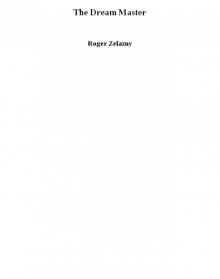 The Dream Master
The Dream Master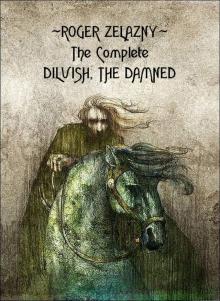 The Complete Dilvish, The Damned
The Complete Dilvish, The Damned Nine Princes in Amber
Nine Princes in Amber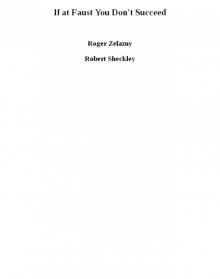 If at Faust You Don't Succeed
If at Faust You Don't Succeed Here there be dragons
Here there be dragons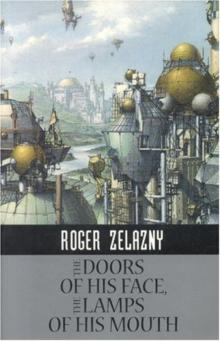 The Doors Of His Face, The Lamps Of His Mouth
The Doors Of His Face, The Lamps Of His Mouth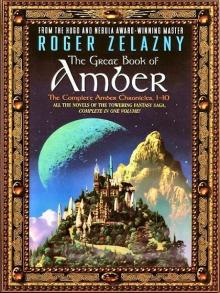 The Great Book of Amber - Chronicles 1-10
The Great Book of Amber - Chronicles 1-10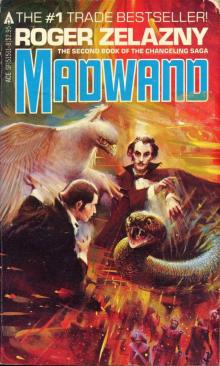 Madwand (Illustrated)
Madwand (Illustrated)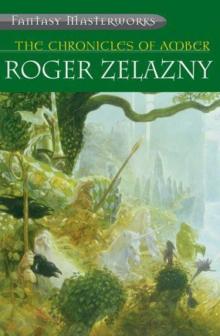 The Chronicles of Amber
The Chronicles of Amber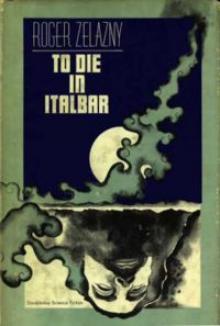 To Die In Italbar
To Die In Italbar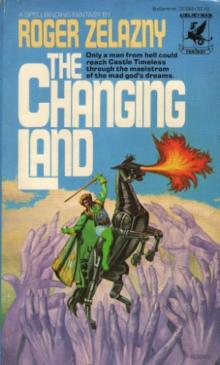 The Changing Land
The Changing Land The Furies
The Furies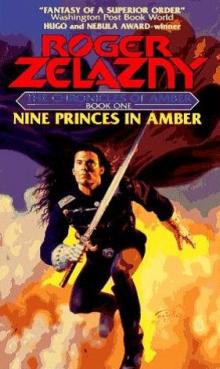 Nine Princes In Amber tcoa-1
Nine Princes In Amber tcoa-1 Last Of The Wild Ones
Last Of The Wild Ones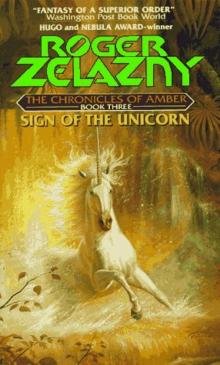 Sign of the Unicorn tcoa-3
Sign of the Unicorn tcoa-3 My Name is Legion
My Name is Legion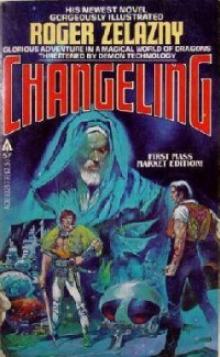 Wizard World 1: Changeling
Wizard World 1: Changeling Changeling
Changeling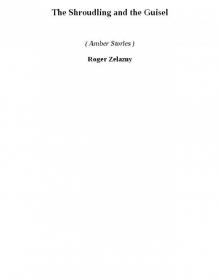 The Shroudling and the Guisel (amber stories)
The Shroudling and the Guisel (amber stories)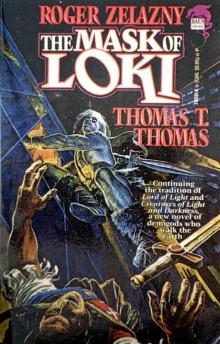 The Mask of Loki
The Mask of Loki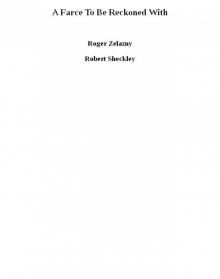 A Farce To Be Reckoned With
A Farce To Be Reckoned With Roadmarks
Roadmarks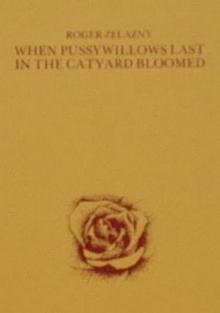 When Pussywillows Last in the Catyard Bloomed (rtf)
When Pussywillows Last in the Catyard Bloomed (rtf)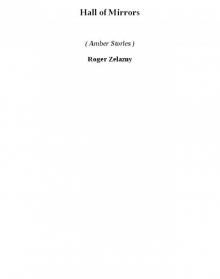 Hall of Mirrors (amber stories)
Hall of Mirrors (amber stories)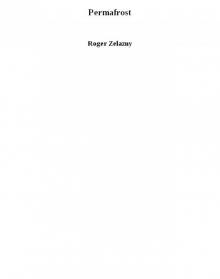 Permafrost
Permafrost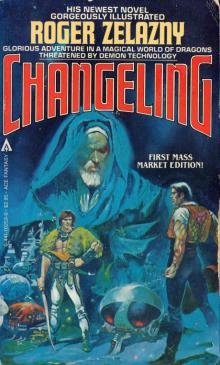 Changeling (Illustrated)
Changeling (Illustrated)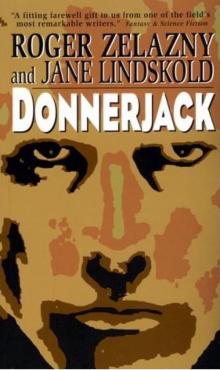 Donnerjack
Donnerjack Shadows & Reflections: A Roger Zelazny Tribute Anthology
Shadows & Reflections: A Roger Zelazny Tribute Anthology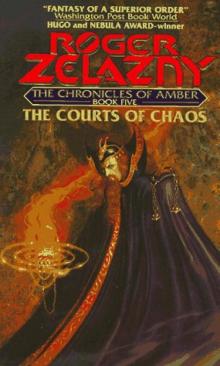 The Courts Of Chaos tcoa-5
The Courts Of Chaos tcoa-5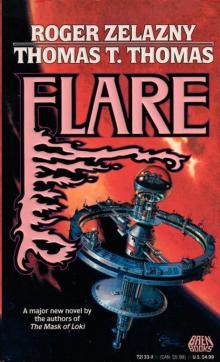 Flare
Flare Doorsways in the Sand
Doorsways in the Sand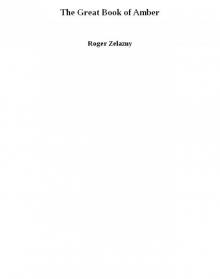 The Great Book of Amber
The Great Book of Amber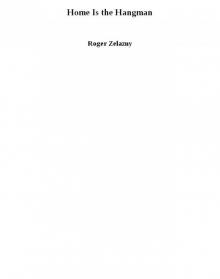 Home Is the Hangman
Home Is the Hangman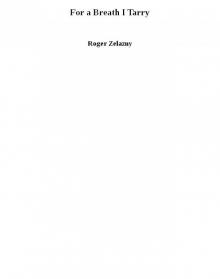 For a Breath I Tarry
For a Breath I Tarry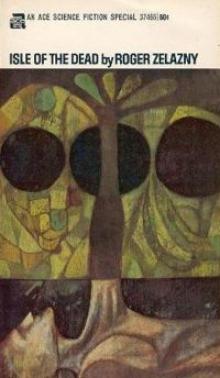 Isle Of The Dead
Isle Of The Dead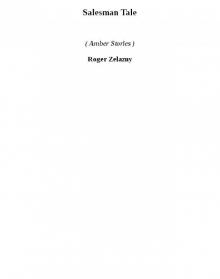 Salesman Tale (amber stories)
Salesman Tale (amber stories)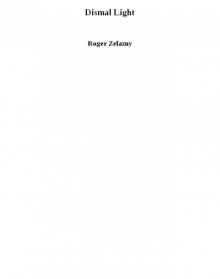 Dismal Light
Dismal Light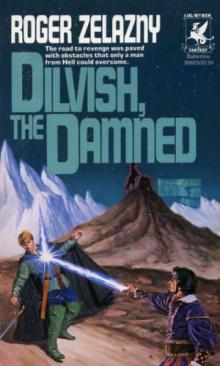 Dilvish, The Damned
Dilvish, The Damned The Black Throne
The Black Throne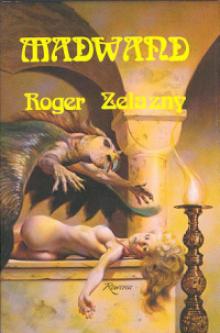 Wizard World 2: Madwand
Wizard World 2: Madwand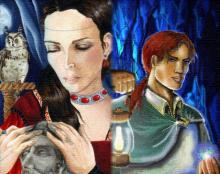 The Salesman's Tale
The Salesman's Tale